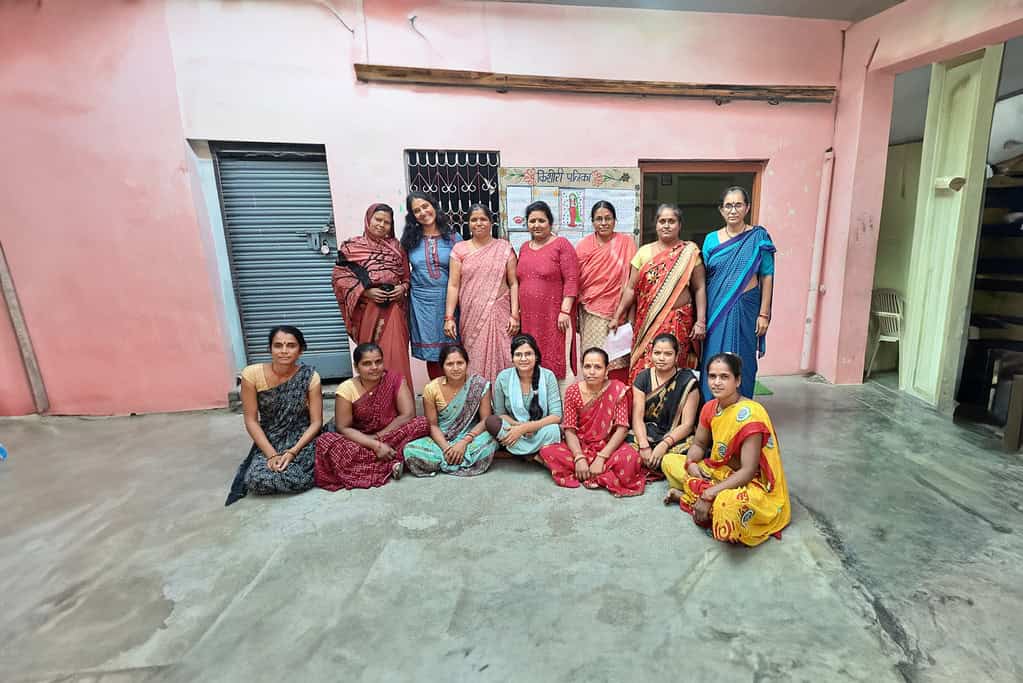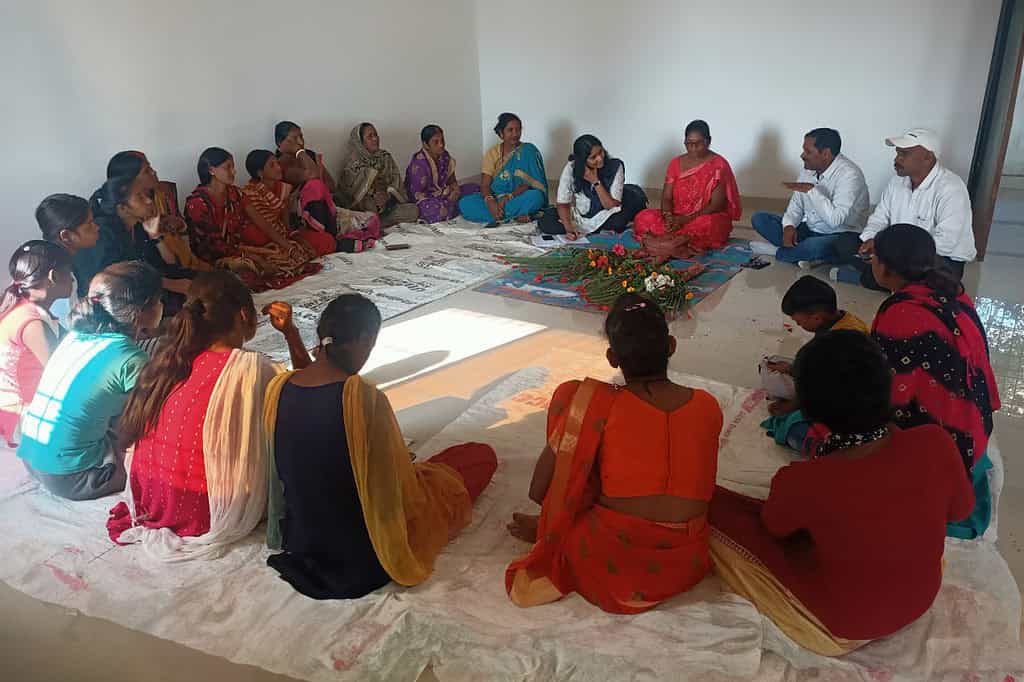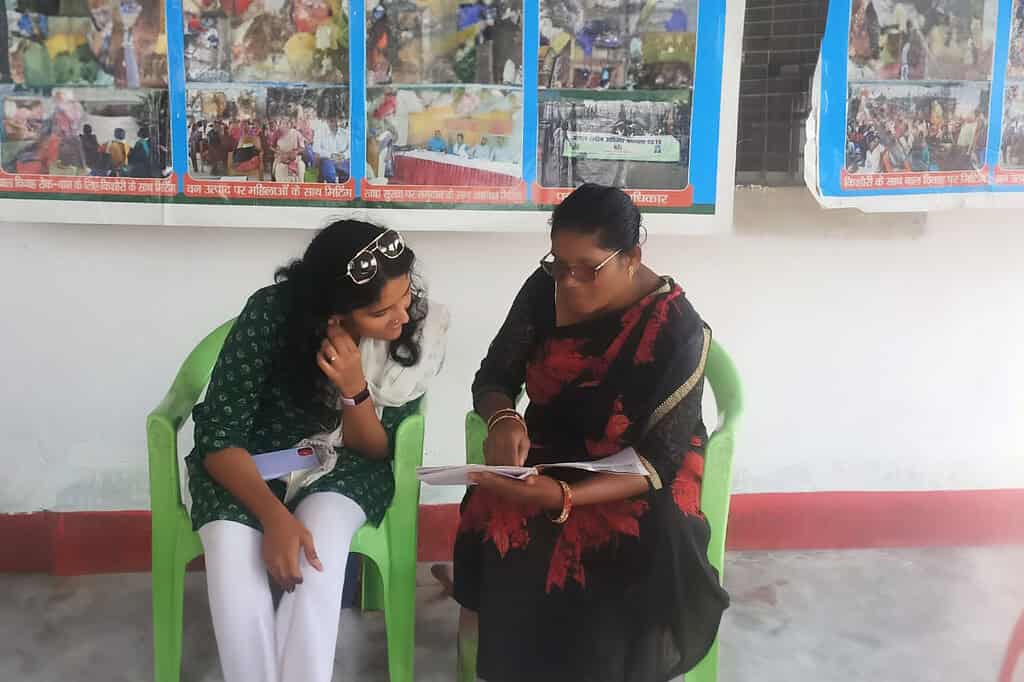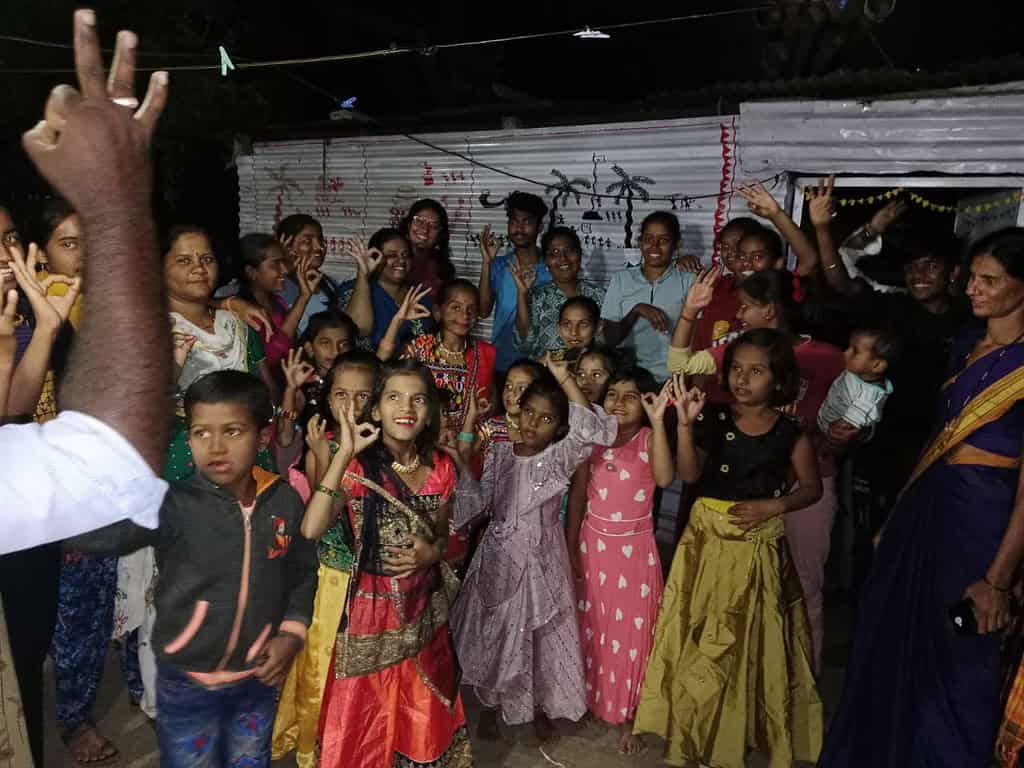Mathangi Swaminathan’s Groundbreaking Initiative to Address Gender-Based Violence in Rural India

How one Acumen Fellow is bringing attention and support to survivor-led grassroots organizations.
- Blog
- India
Content Warning: This post contains mention of sexual assault and violence.
1 in 3 women face violence in their lifetime. That’s over 1 billion people around the world. In India, every hour, at least two women are sexually assaulted and every six hours, a young married woman is beaten to death, burned, or driven to suicide.
Acumen Fellow Mathangi Swaminathan is working to change that. She is the Founder of Parity Lab, a groundbreaking initiative supporting survivor-led grassroots organizations addressing gender-based violence in rural India.
Below, Mathangi discusses how we can disrupt misconceptions about gender-based violence to bring greater awareness and funding to an issue affecting thousands of Indian women, and millions around the world.
The motivation behind the work
Mathangi launched Parity Lab during the COVID-19 pandemic when she noticed two concerning trends: a surge in domestic violence cases worldwide, with India experiencing a drastic increase in girl child marriages (60-70%); and political changes in India which led to a decline in international funding for grassroots organizations.
“I remember really feeling helpless. I kept hearing reports from grassroots organizations calling and saying, ‘Violence has massively increased, we don’t know what to do. [We don’t have enough funding], we might be shut down.’”
Mathangi founded Parity Lab as a support system for survivors leading change against gender-based violence. Their white paper maps the journey to justice for rural Indian women with interviews, case studies, and focus groups revealing the importance of grassroots organizations as the first and only responders for millions of women surviving violence.
Change happens when we break down barriers
Through an 18-month accelerator program, Parity Lab provides grassroots organizations with the support they need to help marginalized women survivors. The program cohorts are comprised of Dalit, Indigenous, Nomadic Tribal women serving over 2,000 families in their region for the past 10 to 15 years. While these women are skilled community organizers, they face challenges in defining organizational structures, capacity building, fundraising, and providing mental health and legal counseling to the women they serve.
“Our vision is that as a result of our programming, each survivor-led cohort organization is able to influence policy at state and national levels, and increase the scale of their own programs to reach and prevent violence at 15-20x scale in 5 years.”
Within a year of the accelerator program, Parity Lab witnessed a fourfold increase in fundraising efforts for the grassroots organizations and have helped them define structures, identify outcomes, improve relations with funders, and establish second and third lines of leadership. They’ve also helped them introduce formal mental health concepts within their communities.
“We have seen this waterfall effect. They get so excited to learn and share what they’re experiencing. That’s the effect of empowering leaders of change. If it goes right, it spreads.”

Parity Lab is also exploring ways to offer practical and aspirational legal counseling by leveraging early-stage funding from Acumen Angels to support grassroots leaders.
“There is this dichotomy of feeling empowered knowing your rights, yet disempowered knowing there’s actually no use in knowing your rights. What do you do with that? This is a question our cohort leaders face day in and day out.”
The challenges of fundraising for gender-based violence
“Even during the peak of COVID-19, when gender-based violence became a shadow pandemic, only 0.0002% of nearly 27 trillion dollars in donor funding went to initiatives addressing it.”
This, coupled with gatekeeping and power brokering, creates a situation where everyone is competing for a small pool of funding, despite the fact this issue affects over 1 billion survivors worldwide.
Another challenge is the misconception about how to address gender-based violence. It’s not just about providing legal aid, but requires addressing complex root causes through systemic change. As Mathangi explains, “Often funders want a linear solution, ‘Do X, and that leads to Y.’ But that rarely happens. This is a big misunderstanding we’re up against.”
“Hopefully by building out this ecosystem we can make a difference to the system. But it’s about starting at a very small level, and supporting our grassroots leaders who are taking on these practical challenges.”

Three ways to unlock funding
“When institutions back early stage entrepreneurs, it’s very, very empowering. And for an issue as under-studied as gender-based violence, it’s incredibly important that institutions and people come forward to back that. That’s the only support that entrepreneurs can have at this point.”
Mathangi proposes three ways to improve the funding landscape:
1. Center on the needs of grassroots organizations
There’s a discrepancy between the “grassroots” language funding institutions use, and the complex, resource-demanding application processes that deter small grassroots organizations from applying.
To align with her beliefs, Mathangi implemented a grassroots-focused application process for Parity Lab’s accelerator program in order to make the process truly accessible to grassroots and women survivors from marginalized communities.
2. Women funders as funding catalysts
The first three funders Mathangi secured for Parity Lab were women-led foundations and transformative contributors. “They can be some of the most catalyzing funders in this ecosystem. I think women haven’t often recognized how powerful they can be.”
3. Breaking the cycle of “like attracts like”
Many institutions require connections for funding applications, limiting access to well-connected individuals and organizations. There also exists a cycle of “like attracts like,” where funding opportunities often remain confined within certain bubbles, making it hard for a broader and less connected audience to reach them.
“Many of the people who have touched me in the last 2 years have said, ‘Oh, you know, I can make this introduction for you to this network’ — which I’d never heard of, but apparently has a lot of funding opportunities.”

Start small
Mathangi reminds us that change can start with small actions. By disrupting the cycle of gender-based violence misconceptions and diversifying representation in the gender-based violence space, we can increase access to funding and other opportunities for organizations that are on the ground, doing the work.
An earlier long-form version of this article was posted in 2023.